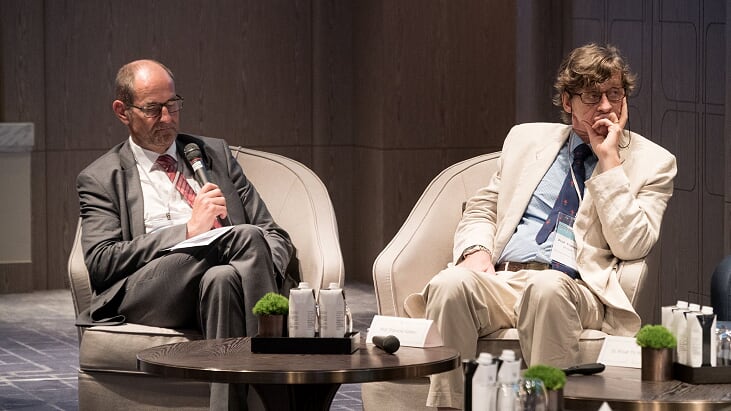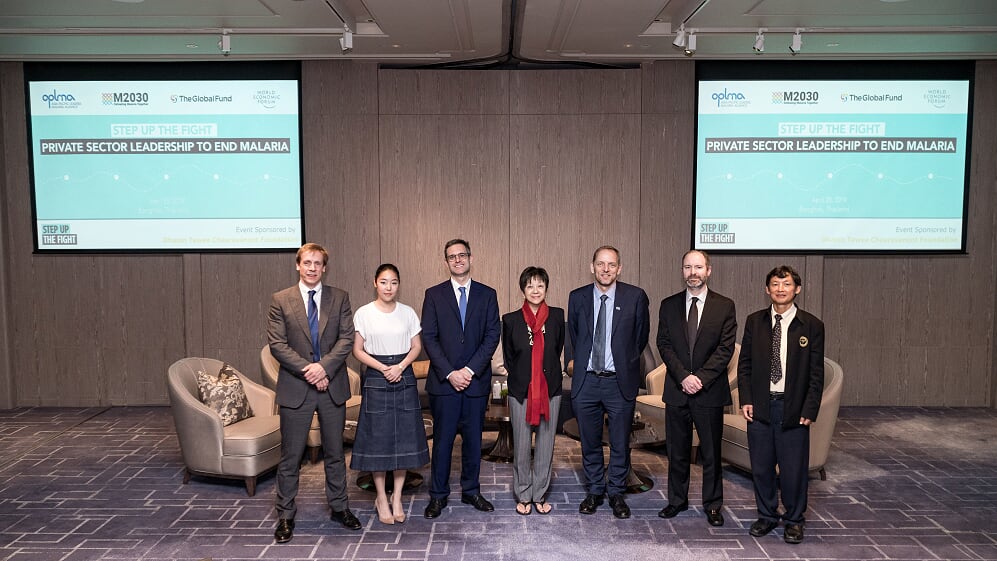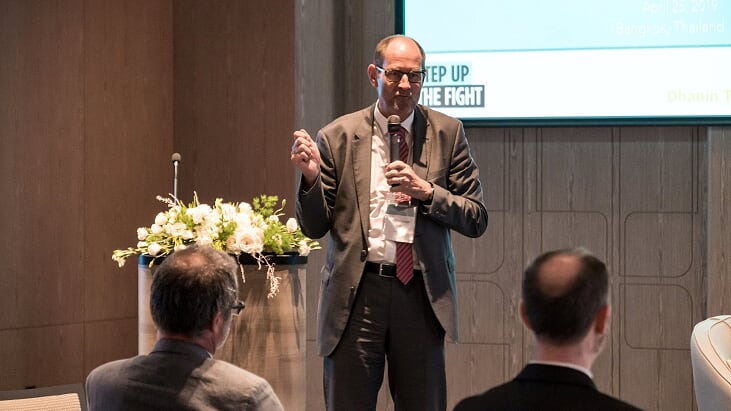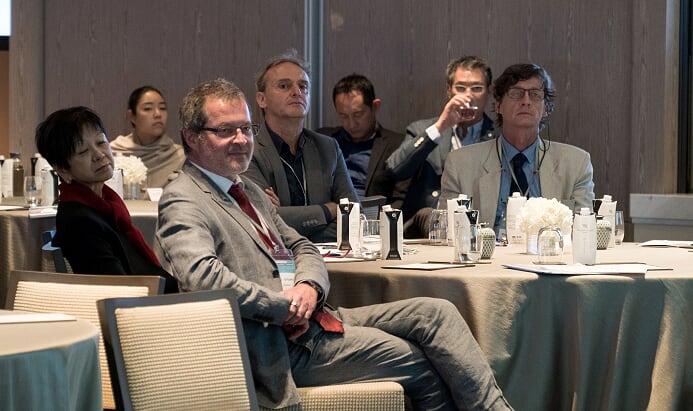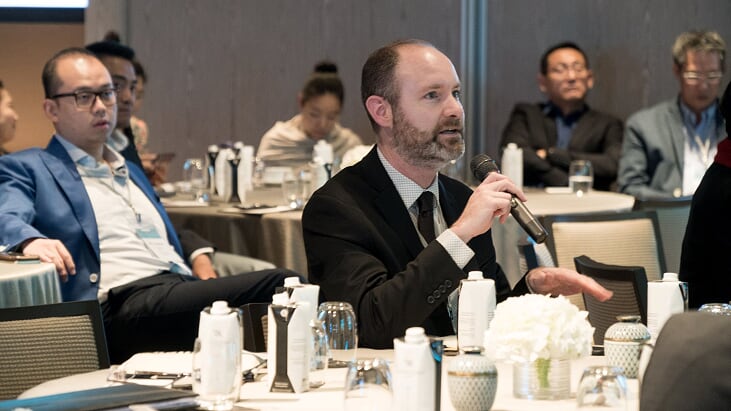Dhanin Tawee Chearavanont Foundation supported 'Step Up the Fight: Private Sector Leadership To End Malaria' a discussion on cooperation to eliminate malaria in the Mekong, involving The Global Fund, Asia Pacific Leaders Malaria Alliance (APLMA), World Economic Forum, and M2030. Held at the Waldorf Astoria Bangkok hotel, the event was part of the foundation's wider support for The Global Fund, which includes a US$2 million donation and US$1 million in in-kind support.
The foundation is helping the drive to eradicate malaria within 5 years, focusing on remote areas and immigrant centers along Thailand’s borders. For the discussion, the foundation helped host 26 organizations from 12 countries. Participants included Dr. Jeeraphat Sirichaisinthop, of the Department of Disease Control, and other representatives from the Ministry of Public Health of Thailand. Ms. Tanyatip Chearavanont, representing Dhanin Tawee Chearavanont Foundation, and Dr. Wit Soontaranun, from the foundation committee, also attended the meeting.
The foundation is helping the drive to eradicate malaria within 5 years, focusing on remote areas and immigrant centers along Thailand’s borders. For the discussion, the foundation helped host 26 organizations from 12 countries. Participants included Dr. Jeeraphat Sirichaisinthop, of the Department of Disease Control, and other representatives from the Ministry of Public Health of Thailand. Ms. Tanyatip Chearavanont, representing Dhanin Tawee Chearavanont Foundation, and Dr. Wit Soontaranun, from the foundation committee, also attended the meeting.
Briefing
As countries where malaria is still present, Thailand and its neighbors remain at risk from outbreaks and the emergence of new drug-resistant strains. For Thailand, the good news is that efforts to fight the disease have borne fruit. Incidence has plunged to only 0.8 cases per 100,000 people in 2017, down from 6.6 in 2000. This progress shows that malaria could now be eliminated entirely from Thailand. Achieving that goal, however, depends on national monitoring and treatment programs and on coordinated efforts across the region.
The Global Fund’s Regional Artemisinin-resistance Initiative (RAI) in the Greater Mekong provides a model of effective regional cooperation. In recent years the program has achieved seamless cross-border action, cutting malaria incidence and keeping drug resistance at bay.
By supporting initiatives that complement such projects, the private and voluntary sectors can also contribute to eradicating malaria. Dhanin Tawee Chearavanont Foundation (formerly DT Families Foundation) has therefore committed to further assist the Regional Artemisinin-resistance Initiative Phase 2 (RAI2). The foundation’s support will help strengthen the human component in malaria elimination programs in three vulnerable areas along Thailand’s borders with Cambodia, Malaysia, and Myanmar.
As countries where malaria is still present, Thailand and its neighbors remain at risk from outbreaks and the emergence of new drug-resistant strains. For Thailand, the good news is that efforts to fight the disease have borne fruit. Incidence has plunged to only 0.8 cases per 100,000 people in 2017, down from 6.6 in 2000. This progress shows that malaria could now be eliminated entirely from Thailand. Achieving that goal, however, depends on national monitoring and treatment programs and on coordinated efforts across the region.
The Global Fund’s Regional Artemisinin-resistance Initiative (RAI) in the Greater Mekong provides a model of effective regional cooperation. In recent years the program has achieved seamless cross-border action, cutting malaria incidence and keeping drug resistance at bay.
By supporting initiatives that complement such projects, the private and voluntary sectors can also contribute to eradicating malaria. Dhanin Tawee Chearavanont Foundation (formerly DT Families Foundation) has therefore committed to further assist the Regional Artemisinin-resistance Initiative Phase 2 (RAI2). The foundation’s support will help strengthen the human component in malaria elimination programs in three vulnerable areas along Thailand’s borders with Cambodia, Malaysia, and Myanmar.

